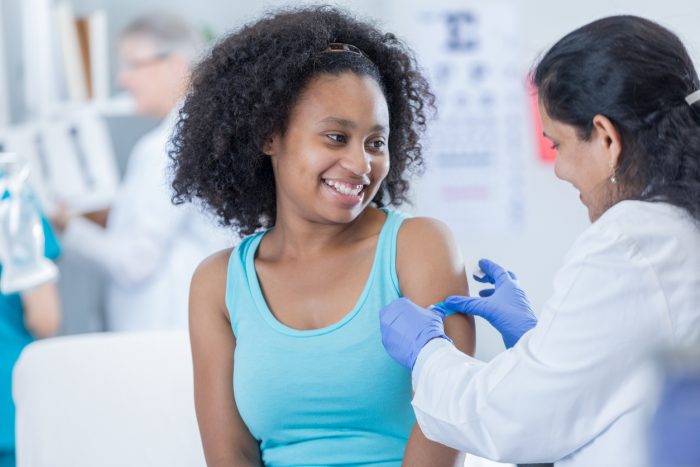
Human papillomavirus (HPV) is a common viral infection that can be spread sexually and through any type of skin-to-skin contact. In fact, it is the most prevalent sexually transmitted infection (STI) in the United States. Various HPV strains are associated with most cases of genital warts and cervical cancers. There are some rare types of cancer of the penis, vagina, anus, throat, and mouth linked to HPV as well.
Luckily, a highly effective vaccine is available to prevent people from being infected with HPV. It is recommended that young girls and boys get vaccinated prior to being sexually active.
The HPV Vaccine is Highly Effective
If you receive the vaccine before you are ever exposed to HPV, it is 97% effective when it comes to preventing cervical cancer as well as the types of changes to cells that can lead to cancer. In addition, the vaccine prevents external genital warts nearly 100% of the time.
The HPV vaccine now available provides protection from nine of the riskiest strains. These are the strains that are at the root of most cervical pre-cancers and full-blown cervical cancers, as well as the HPV strains at the root of most external genital lesions and warts.
The HPV Vaccine is Vital for Public Health
This vaccine has been extensively tested for safety, so there is ample proof that it is safe and that it does not pose any major health risks or cause any serious side effects. The more people get vaccinated, the less HPV will spread, so there will be a lot fewer cases of related cancers.
The HPV Vaccine is Safe for Children and Adults
The age at which children should receive the HPV vaccine is ideally 11 to 12, but everyone from age nine through 26 can get it. For sexually active people who are older and at risk of catching HPV, they should speak with their healthcare provider about the need for the vaccine. People up to age of 45 are approved to receive it.
The perfect time for getting vaccinated is when children and teenagers are getting their routine vaccinations, typically required to attend school. So, these shots are most often given by the child’s pediatrician or the family doctor. But if you didn’t receive the vaccine your ob-gyn or another healthcare provider can also give you the shot.
The Vaccine Helps People Who Already Have Had HPV
The majority of people who get infected with HPV catch it when they first start having sex. However, women who have already been diagnosed with HPV are typically not diagnosed with all nine types that the vaccine protects against. Some of those patients will be advised to get vaccinated if they haven’t previously done so. But if you’ve already reached middle age, and starting to date again, you should ask your physician about the vaccine if you’re sexually active.






